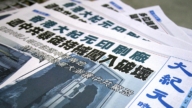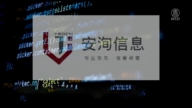【新唐人2013年09月03日讯】近期,大陆警方对网络言论展开了新一轮的打压,并将打压面完全扩大到数亿普通网民,一时间,网络上因言获罪的消息不断,网民们所谓的“罪言”和被警方加诸的“罪名”更是也是五花八门。而评论指出,当局对网络言论打压面的持续扩大,虽然短期内达到了令网络集体噤声的目地的,但也激起了除激进派、温和派、自由中立派人士以外,数量最庞大的大陆普通网民们的反抗意志。
近来 中共当局对网络言论的打压,与往年只打击激进的反对派情况不同,今年在网路红人“秦火火”被拘之前,中共当局抓捕了一大批温和派的政治异见人士和人权活动人士,如﹕广州知名维权人士郭飞雄、张林、法学家许志永、独立制片人杜斌等等,一大批温和派的政治异见人士和人权活动人士。而自“秦火火”之后,受被打压的对像则开始转向网络爆料人、大V名人、博客作家,甚至媒体记者等自由派人士。
北京社会活动家胡佳:“开始他们针对网络上的言论主要采取的方式,是删贴、封号、或者是由警察、国保来找喝茶,今年它们最开始压力没有放在这上,他们主要针对公民的街头化、组织化的行动。当那波行动活跃者身陷囹圄之后,他们回过头来开始整肃互联网上的言论。想让互联网的冬天提前到来,就是这个冰冻期。”
此时,一些政治嗅觉灵敏的观察人士预言,当局的打压范围最终将会扩大到普通网民,成为二次文革。很快,这一预言成为了现实。短短一周之内,全国因言获罪的普通网民达到了近千人,网民们只要稍有不慎,就可能被当局以“造谣”、“传谣”、“诽谤”、“寻衅滋事”等各类罪名拘捕,对此,媒体人郭光东在微博上暗讽,打击网络言论“总有一款适合你”。
据大陆媒体8月28号报导,河北省清河县警方发现百度贴吧“清河吧”一位网民发布消息询问:“听说娄庄发生命案了,有谁知道真相吗?”,在这一消息被点击1000多次以后,被当地警方发现,并迅速将发帖的20岁女网民,以扰乱社会公共安全秩序的罪名行政拘留,招到了引起很多网民的非议。
福建网民倪先生:“我觉得警方的做法有点过分了吧,也许这个网民的问这个问题她就是出于一种好奇,又或者是关心事发地有她的亲朋或者好友的安全,完全不牵扯造谣一说吧,更谈不上扰乱治安。要是警方真的担心有不良影响,其实他完全可以在网上直接回答她呀,又或者在官方澄清事实啊,为什么要把她抓起来呢?简直是在滥用职权嘛!”
类似事件不止上述一例,8月26号,安徽砀山发生一起交通事故,造成了10人死亡,5人受伤。网民于和玉在网上发消息说有事故造成16人死亡,也被警方以散布谣言为由行政拘留。对此,民众认为当局的做法既不合理,又不合法。
南京东南大学法学教授张赞宁:“要求一个平民百姓一点误差没有,这是很不切实际的,你官方的报导还有误差呢,你经常有什么矿难事故、动车事故,开始报导死了90多人,后来又报导道100多人,那你官方媒体报导难道也是谣言吗?,所以有误差跟谣言是完全本质上不同的两码事。”
随着网路言论空间被压缩极限,对当局不满的网民也越来越多,党民矛盾被激化到了一个新的高峰。
大陆网民姚诚:“他们的新闻没有自由,就不让我们说话,所以就弄了一些罪名,什么造谣啊、什么诽谤啊,反正对他们不顺眼的就抓,但是它这个抓的没有道理、也不服众,所以大家也没有被这个吓倒,我们还继续在该说什么话说什么话。”
有网民直言,民不畏死,奈何以死惧之?文字冤狱只会让更多向往自由的人,积累从量变到质变的反抗意志,大陆网友奉劝中共当局不要再与民为敌,否则必自掘坟墓。
采访编辑/张天宇 后制/李月
CCP Cracks Down On Netizens, Causing More Objections
Mainland China’s police have launched a new round
of suppression toward online free speech,
and has expanded it to the hundreds of millions
of China’s netizens.
Many netizens have been punished for their online statements.
There are many so-called “illegal words" and “illegal names."
Commentators say that although the expanded suppression
by the authorities may temporarily silence the crowd,
it will lead to objections from the majority of the netizens
in addition to the radical, the moderate, and the liberal.
Recent internet suppression by CCP authorities is different
from its past focus on only those who radically oppose the party.
Before the arrest of Qin Huohuo, a well-known netizen,
the CCP arrested a large number of moderate
political dissidents and human rights activists, including:
renowned Guangzhou human rights activist Guo Feixiong,
well-known democracy activist Zhang Lin,
legal professional Xu Zhiyong, and journalist Du Bin.
Since the arrest of Qin Huohuo, the target of the suppression
has expanded to include online news sources,
blog writers, even reporters and other liberals.
Beijing activist Hu Jia: “Initially their main approach for
internet statements was removing the statements,
denying writers access, or having the police or
public security “invite them to tea."
Since the start of this year, they hadn’t continued in this way.
They’ve mainly targeted organizers of citizen movements.
But after this wave, they’ve come back to discipline netizens.
They have started the ice age of the internet."
Some observers of sensitive political issues predicted that
the authorities’ suppression will include ordinary netizens,
and will eventually turn into the second Cultural Revolution.
This prediction has become a reality.
Within just a week, nearly a thousand ordinary netizens
were arrested for online statements.
The slightest careless comments might lead to a netizen being
detained for “fabricating rumors," “spreading rumors," “slandering" and “causing trouble."
Media professional Guo Dongguang said on his microblog,
“there is always an online crime to fit you."
According an August 28 report by Chinese media,
police in Qinghe County, Hebei province found an
online post which read,"I heard there was a murder case
at Lou Zhuang. Who knows what happened?"
When it had 1,000 views, police quickly detained the female
20-year-old netizen for “Disturbing Social Safety and Order."
This has incited many netizens to protest.
Fujian Netizen Mr. Ni: “I think the police overreacted.
The netizen might just be curious, or
concerned about her friends and family.
It has nothing to do with fabricating rumors,
nor disturbing social orders.
If the police are really concerned over this,
they could simply answer her question.
Why arrest her? This is abuse of power!"
There are many more similar events.
On August 26, an accident happened in Anhui,
resulting in 10 deaths and five injuries.
Netizen Yu Heyu posted the news online saying
“16 people were killed."
She was also detained by the police for “spreading rumors."
People think the authorities follow neither the law nor reason.
Zhang Zanning, law professor at China’s Southeast University:
“It is unrealistic to require an ordinary citizen’s report to be
accurate without any error, but how about the official reports?
The casualty number in initial reports on mine accidents,
or train accidents also varied among state-owned media reports.
Aren’t the official media reports making rumors?
Rumors and errors in reports are two entirely different things."
With the suppressing of internet freedom, more and more
netizens are dissatisfied with the Chinese authorities.
The intensity of conflict between CCP and the people
has reached a new peak.
Chinese netizen Yao Cheng: “There is no freedom of speech.
We are not allowed to speak.
They made up all these crimes such as fabrication, slander, etc.
The bottom line is that they arrest whoever they do not like.
But these arrests are not reasonable, so nobody accepts it
or is intimidated. We’ll continue to say what we should."
Some netizens say scaring people with death is of little avail.
Suppressing free speech only makes more people
long for freedom and adds fuel to the flames of protest.
Chinese netizens advise the authorities not to make the people
out to be it’s enemy, otherwise it’s digging its own tomb.





























